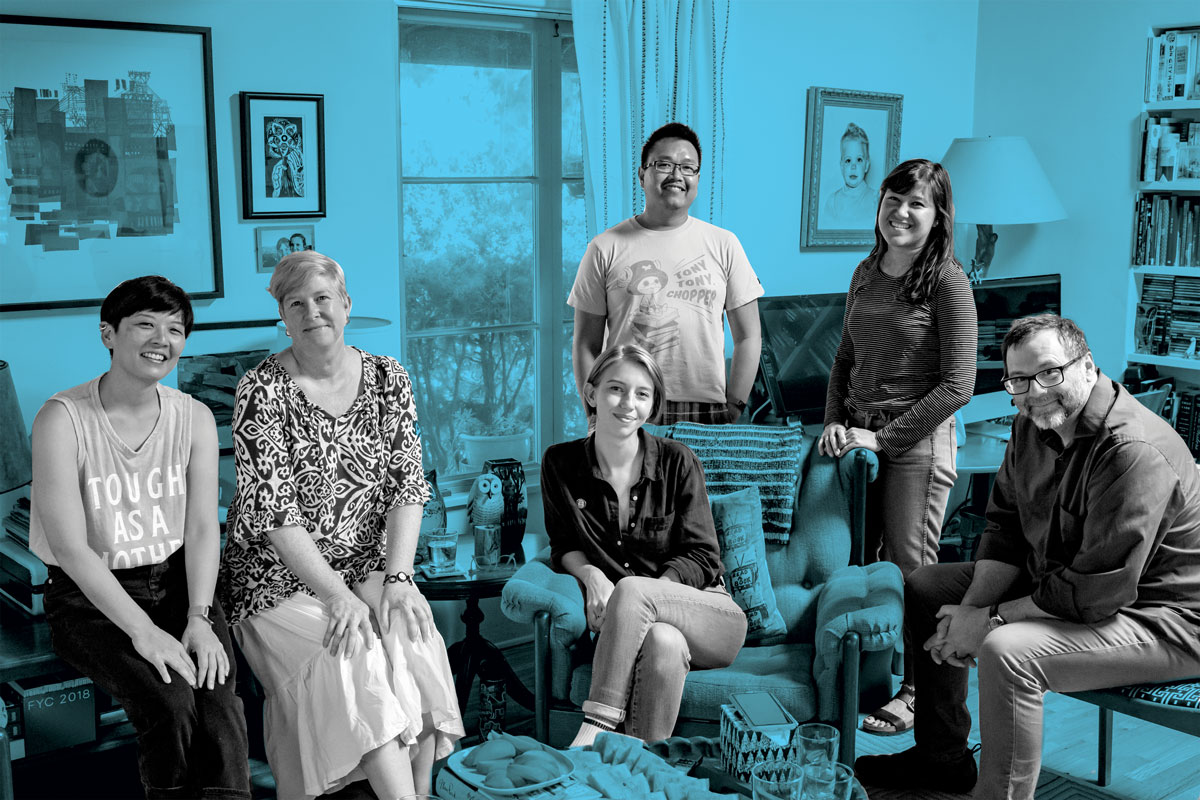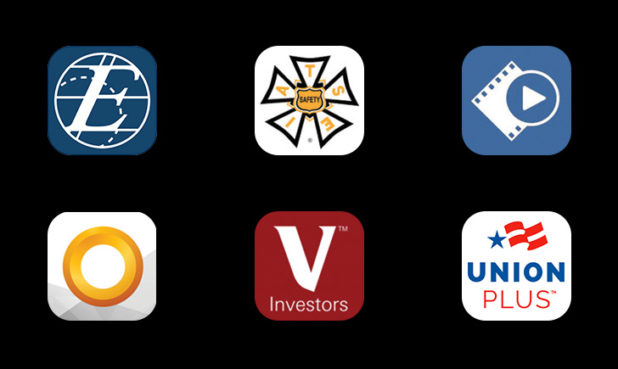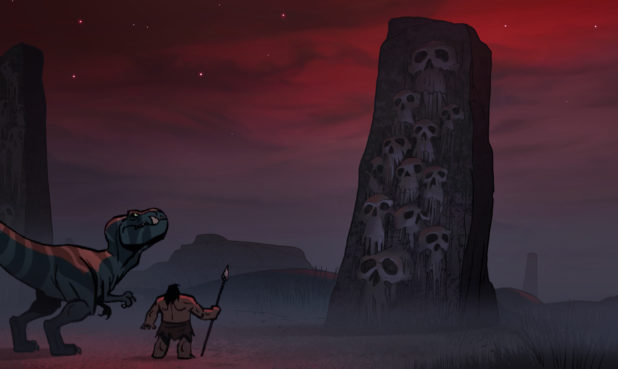Animation is a highly competitive scene, and with the “Streaming Wars” in full swing, studios are looking to churn out a lot of content quickly. The paths of entry for newcomers are more numerous and varied than ever before—posting Sailor Moon fanart on Twitter one day can land you a studio gig the next.
But the increase in available work and the globalization of the industry have drawbacks, too. With all this content to be made, how do you find the right person to make it? Skills evaluations or “tests” have become common practice when trying to fill a creative position within a production. If you’ve never taken one, here’s the gist: if a show is interested in you but not sure that you can deliver exactly what they need, they may send a test for you to complete (e.g. a segment of a script to board out, a list of props/characters to design, a piece of dialog to animate using one of the show’s characters, etc.) These tests are almost always unpaid, are not guaranteed to lead to a job, and frequently end in the test-taker being ghosted by receiving no response at all.
According to The Animation Guild Master Collective Bargaining Agreement (under Sideletter J, pg. 98 of the 2015-2018 CBA) “such evaluations should require only a reasonable amount of work to complete and should be related to the hiring, promotion, and/or assignment decision.” But when the stakes are high and schedules are tight, ethics aren’t always a studio’s priority. Time consuming, excessive, and downright exploitative tests are a major problem in the industry.
I sat down with a group of Animation Guild members in supervisory and directing positions of various crafts and experience levels to discuss the issue, and the role that supervisors play in it.
What was it like trying to get into the animation industry?
Paula Spence: I got my first job on SpongeBob SquarePants, the first season. I had a degree in illustration from Cal State Long Beach and a friend of mine was on the show. He was looking for somebody to hire for a background design position and I did a test that was two or three backgrounds. Since then, I’ve done other tests mostly in that first five years of my career. Most of them did not pan out and I tested three times for Camp Lazlo before I got on that one.
Kimberly Knoll: I took a test for my first job for Venture Bros in New York and it was for BG paint. It was two backgrounds. Then for my second job, I did multiple time of days for another BG paint test. That was for Sanjay and Craig at Nickelodeon. I’ve done tests for almost every job except for this one I’m on now.
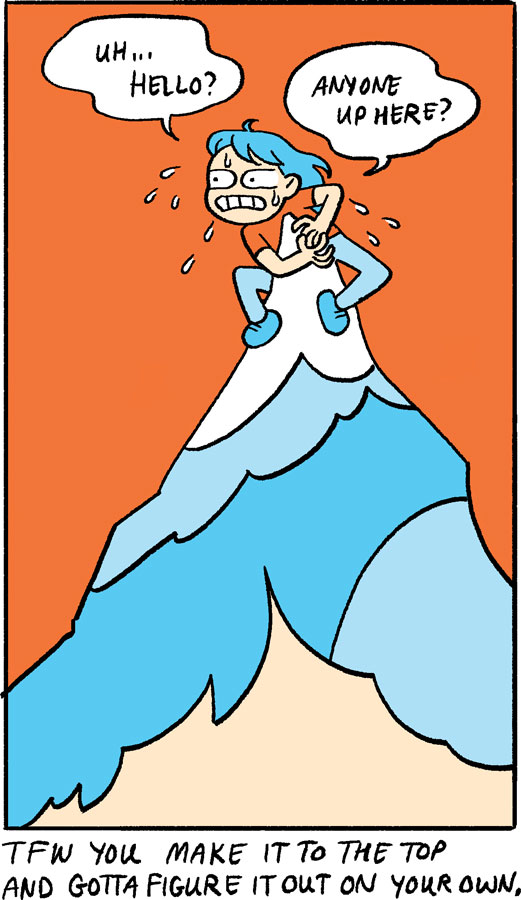
Pete Michels: I took some feature tests and got nowhere, but then realized I was not a feature animator. I took a test on The Simpsons when they were first hiring and that’s how I got my first job. It was a character layout test and it was two scenes. I took it twice and I never passed the character part of it, but the second time they liked my background so I got hired as the background layout artist. But I remember how harrowing an experience that was and I had no idea what I was doing.
Elizabeth Ito: I did test for my first industry job. I was a story trainee for DreamWorks feature. I don’t know if I tested for every single thing after that but the next test that I really remembered taking was for Adventure Time where I took a storyboarding test.
Ben Juwono: My first job, I did have to test for it. It was for Ultimate Spiderman. That test was about a page of action stuff and I did not get hired based off that test but they did offer me a two page freelance [assignment], which later I found out was kind of a second test. When I was revisionist on Spiderman, I did take a test for Legend of Korra, which was awful. That test was three pages long, two pages of conversation and one separate page of just full chase sequence action. I had to take a whole week off to finish it. On the night before [it] had to be submitted, my computer had a meltdown and I lost all [of it]. I redid the test the morning of, submitted really crappy stuff a day late and, of course, I didn’t get the job. But after that I was just like, “That was unreasonable.” Thankfully, I had never had to test again after that.
How do you think testing became a common practice?
PS: I think that a lot of stuff happens out of habit and laziness in the industry. Everybody here got their first jobs with testing, so you just automatically assume that’s how it works, everybody takes a test to get a job. Now, we’re looking back at it and going, “Wait a minute. Do we need to do that?”
KK: I took my first test in 2011. I think it was very normalized at that point. So, I never questioned it up until now when we start talking about it at the Guild meetings.
PM: It was there when I started in [the] early ‘90s and it had been going on before that. But I’ve seen tests on different productions get more complicated and harder. I’ve heard of people taking vacation days to take tests and that’s just wrong. If you can’t do it on a weekend, then a test is too long. I’ve seen tests where they call for 75 panels or more. I can tell in the first three pages if you’re right for the show.
EI: You shouldn’t have to feel like you’re actually doing the job yet. It’s just supposed to give you a quick taste of whether somebody has skills that you’re looking for. I agree that the ones that are epic, that’s based off of total laziness, where people didn’t really think about why they’re even doing it.
BJ: Now that we have a boom of content, there are a lot of young creators. They pitch a show, they get the show picked up and now they are in a position where they’re basically in charge of everything. So, it makes sense that some of these people in charge of making decisions get a bit timid. So, they cast a wide net and they test everyone. [The] thing about this industry is that it’s scary enough being down here as a board artist or as a revisionist because you’re never sure what your next job is or if you’re going to get to survive. It’s a lot scarier when you’re up there because now you’re in charge of everything and if you make the wrong call, not only [do] you lose points with the studio, not only [does] your reputation get ruined, but you also lose respect from the people that work [below] you. I would be very scared being in that position [and] making the wrong call to a point where I would not dare to take risks anymore. The higher up you go, the more scared you get.
What changes can we make to the culture of testing?
PS: I’ve talked to other art directors at Cartoon Network and I’ve had a couple of them ask me about testing and I go, “The first thing you should know about testing is you don’t have to test.” And they always look surprised.
EI: There’s ways to do stuff that isn’t just testing or not testing. That’s one of the things that we were talking about on my show because I needed to test people but there was discussion at the studio about testing in general. People were [saying] “Well, what if we just give freelance instead?” And then I think the in-between was paid tests. You’re paying them for their time. Whether or not they’re going to get the job, they’re still getting paid. For me, I found that to feel better than just asking somebody to test for free, especially if they’re somebody that’s never worked before.
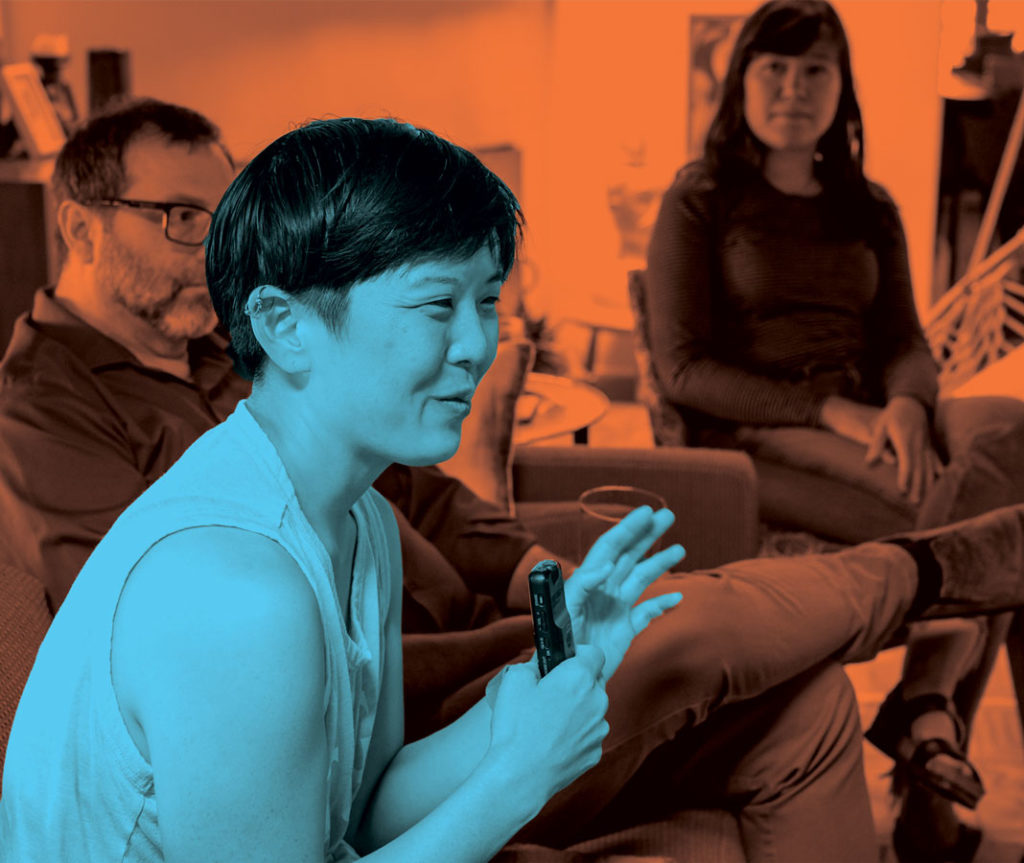
“Everybody here got their first jobs with testing, so you just automatically assume that’s how it works, everybody takes a test to get a job. Now, we’re looking back at it and going, “Wait a minute. Do we need to do that?”
BJ: What I found out is that [at] some studios the producer [doesn’t] actually have control over the budget completely because the studio controls the budget. So if you go to your producer and say, “Hey, can we set aside some money for paid testing?” as supervising director, I don’t actually have that power. This has to be something that is talked about and discussed before the budget’s even finalized. Once the budget’s finalized, there’s no more room to [say], “Can we set aside $10,000 to test X number of people?” The last two episodes of the first season [of Big Hero 6: The Series], I actually kept one board artist spot on my team completely open. I never hired anyone. For the last two episodes, I would freelance them to people that I want to [hire for the next season]. Each of them gets five pages. Within 12 weeks, I got to test four people and they all get paid.
PM: You also get the work done.
BJ: I also get the work done. Well, no, some of it I have to redo. But that’s the risk that you take. But from that I found one person that actually worked out and I don’t feel bad about making the other people work because I paid them. And that circumvents that whole idea of, “Oh, sorry, we just don’t have the budget for that.” But that does require the director taking that risk.
How do you think we as a community face the lack of accountability when it comes to testing?
PS: First of all, we’re talking about it now—that’s great. And I’m really excited to hear that everybody has such similar ideas that are based in being good to other people, being fair and just talking to your co-workers. I’ve worked on a lot of shows that had very young creators. Just easing the tension by sometimes calling myself grandma [and saying] “Hey, grandma has some advice for you.” Giving them some education and saying, “You remember what it was to take a test, right?”
KK: I try to talk to my coworkers about their opinions on taking a test. People are very wary [of] making people work and we all want to be considerate of other people’s time. If you’re in a supervisor position, talk to people that you’re supervising and [don’t just go] along with what you’re comfortable with or what you’re used to for testing.
PM: Once you’re [a] supervising director, you get more pressure. We’re really middle management. But we’re also artists and we have a foot in both camps. I think it can be scary to talk to your showrunner and say, “I think this test is too much. I don’t want to make people do this.” But I think we’d all be surprised if we did talk to our bosses, they’ll perhaps say, “Really? Okay. Well, we’ll fix that.” I think they’re probably more open to it than we realize. By getting the concerns out in the open we can talk about [testing] and not be so intimidated by it.
BJ: You’ve got to be considerate. I notice that people who are running shows are very passionate people who have a story to tell. And oftentimes, it almost becomes myopic. They are so focused on their story and their craft that they forget there are these people all working for them, with them. Oftentimes, there is this idea that the “ends justify the means.” Whatever it takes to make the show good without realizing that you also have to be considerate to the people that work for you. And if you treat them just as tools, as just the hand that draws, then all you get is the bare minimum.
PS: You have to trust them. Right?
BJ: You have to trust them. When you’re a showrunner or a creator, it’s your personal project, but the thing is you have to delegate. The showrunner doesn’t have to be in the room and judge every test. Leave it to the directors. And people like us, we need to speak up more as well.
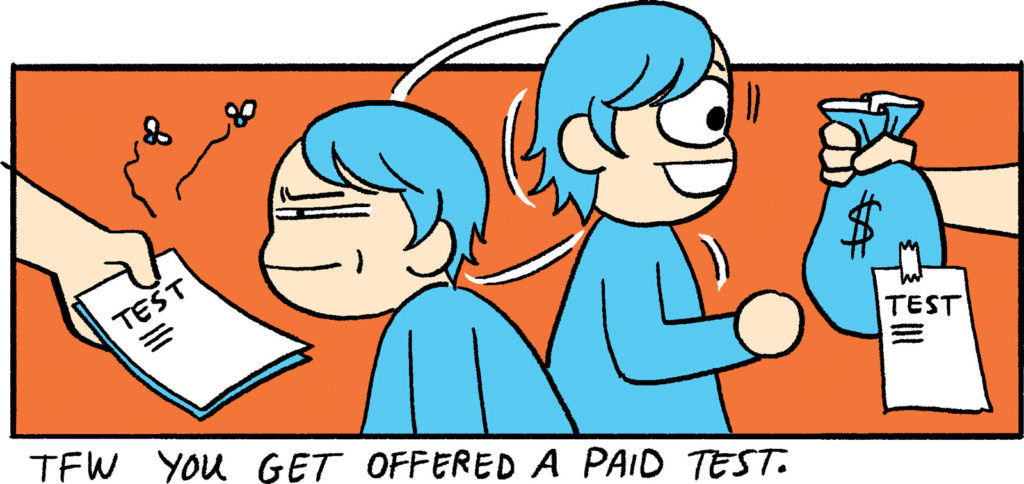
EI: Another thing is if [you] are young and you think you want to have your own show, maybe think about it as like, “I’m probably going to need to know people who could help me do this.” As opposed to, “I’m going to pitch this idea and it’s just going to be me making this thing.” It’s not realistic to what the position is. It’s managing people. That’s your job now.
PM: How do you test for [management skills]? You can’t test for that.
BJ: I’ve been experimenting with this because I am in the process of picking directors right now. There’s no way to test a director because it’s about managing. So I schedule lunches with all my director candidates at least three times just to see their personality. We would talk about films we like and what we don’t like, to make sure [our] sensibilities are similar. It’s testing for a leadership position. I’ve seen how they behave, I’ve seen how they talk, I’ve seen their Twitter. That’s part of the judgment because you’ll be working with these people [all] day.
What methods do you typically use to hire someone for your show?
BJ: If they have samples, [or] if I have worked with them before, then it’s easy to decide. I do test very rarely just because from my personal experience, we don’t see much more [in a test] than what we’ve seen in the portfolio. So testing is always the last resort for me.
EI: Even if I’ve worked with them before, I’d always meet with people first. I’d have a meeting to tell them about the show and tell them about what I would want them to do in that role. My rule was generally, if I’ve never worked with you before, or I don’t have a good enough understanding that your experience level is right for this yet, I’m going to have to give you a [paid] test. It’ll be a short test, I just need to know what your skills are and if you fit for this. It’s worked out in most cases.
PM: When I’m staffing up, especially for storyboarders and directors, I look at it as casting. With an adult show, it’s a very different style of boarding and posing than it would be for Looney Tunes. I’d look through portfolios. Some I’d recognize and some I wouldn’t. A lot of portfolios would be people submitting online who have no experience, and there’s a lot of amazing talent out there. I strive for trying to keep a balance of new artists and veteran artists because both can learn from each other.
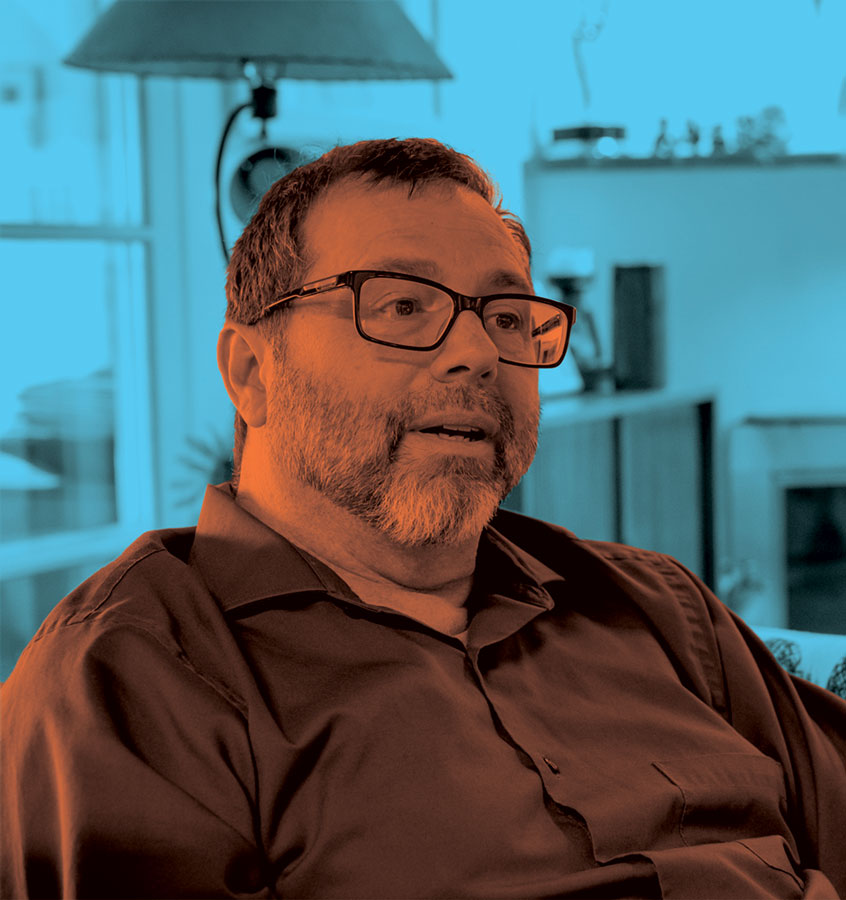
PS: I definitely try to hire without testing. If my showrunner really wants to try some unfamiliar people, then I try to make sure it’s a paid test, and keep it to four to eight hours (of work) at the most. I try very specifically to create a test that will highlight the skill we’re looking for. I want to set them up for success with a well-made test.
KK: I’m staffing up an art department for the first time. I’m in the process in real-time, figuring out how I decide who to hire and whether or not I want to test. Thankfully at Netflix, they are requiring everyone to do paid tests. When we made the test we wanted to absolutely make sure that it could be done within eight hours since the test was paying for eight hours.
Since they were paid, do you think that affected who you considered for the tests?
KK: I already had in my mind, before I found out about the paid testing, that I didn’t want to send out more than about five tests per department. It didn’t change who I considered.
A few of you have said that you don’t need a lot of material from a test to decide if that person is the right fit. Why do you think so many tests ask for an excessive amount of work?
BJ: When I was helping make tests, sometimes you get told, “Oh, you’re not allowed to use any script material that is already being produced for an episode,” which means someone has to write a new script for that. So part of it is laziness and part of it is there’s no resources to do it. It’s great to have a budget set aside for paid testing, but there also needs to be some resources set aside to create tests.
EI: I would guess in some situations that it’s a misunderstanding of the amount of work somebody is asking of the person that they’re testing.
PM: There’s been several shows that I’ve supervised where the tests were already made and given out before I even started. I’m like, “How did you make these tests?” And a lot of times it was, “Oh, I just took two pages out of the script.”
PS: I think that a lot of times they come from premise [or] board driven shows. They don’t know what they’re looking for, so they want to test for everything. Let’s get a little bit of action. Let’s get a little conversation and let’s get some comedy in there and let’s make sure that they can draw different characters because there is no pre-design in the process, then I think it all just adds up.
EI: Part of it is just also reminding people who are taking the tests that you should just limit the amount of time you spend on it, too. I think sometimes people can want to really seem impressive and like they really want to get the job so they’ll put in more hours than you know.
What’s a piece of advice you would give to someone who is aspiring to be a supervisor or has been promoted to that position?
BJ: The best advice I can give is to listen to the people that work for you. Be aware that your words now have consequences.
EI: Try to be a good communicator. And the other thing is to always be aiming to simplify situations instead of over complicating things.
PM: The first thing I would say to someone moving into a supervisor role is learn every aspect of production. Don’t assume that you know what somebody does; in other words, walk a mile in their shoes.
KK: I’ve been trying to learn [from] other art directors, asking people who I know have been in this position before, trying to talk to as many people as I can for advice. So ask a lot of questions and meet a lot of people so you don’t feel like you’re starting from square one and alone in the process, because having mentors and as much support as you can makes the whole process a lot easier.
PS: Communication’s the best thing you can focus on when you’re becoming a supervisor—communicating with your production team, your line producer, your showrunner, and the people that are working for you so you can build that trust and respect.
What’s a piece of advice you would give to someone who is being asked to do a test?
BJ: If the test is unreasonable, it’s your call whether or not you want to take it.
EI: Just think it over, and always know that if it feels like it’s not right or that they’re asking too much of you, know that it’s not a big deal to say, “I don’t want to do it.”
PM: Don’t be afraid to ask questions. If you get a test and there’s something unclear, call up and say, “Hey, do you want me to draw the shoelaces on all the characters?”
KK: Ask questions and communicate when you get a test, but also after you’re done be honest about how long things took.
PS: Work hard, but don’t set unreasonable expectations for yourself or you’re just going to set up a vicious cycle of overworking yourself. You should be able to do the job by working hard and using your talents, but not killing yourself.
